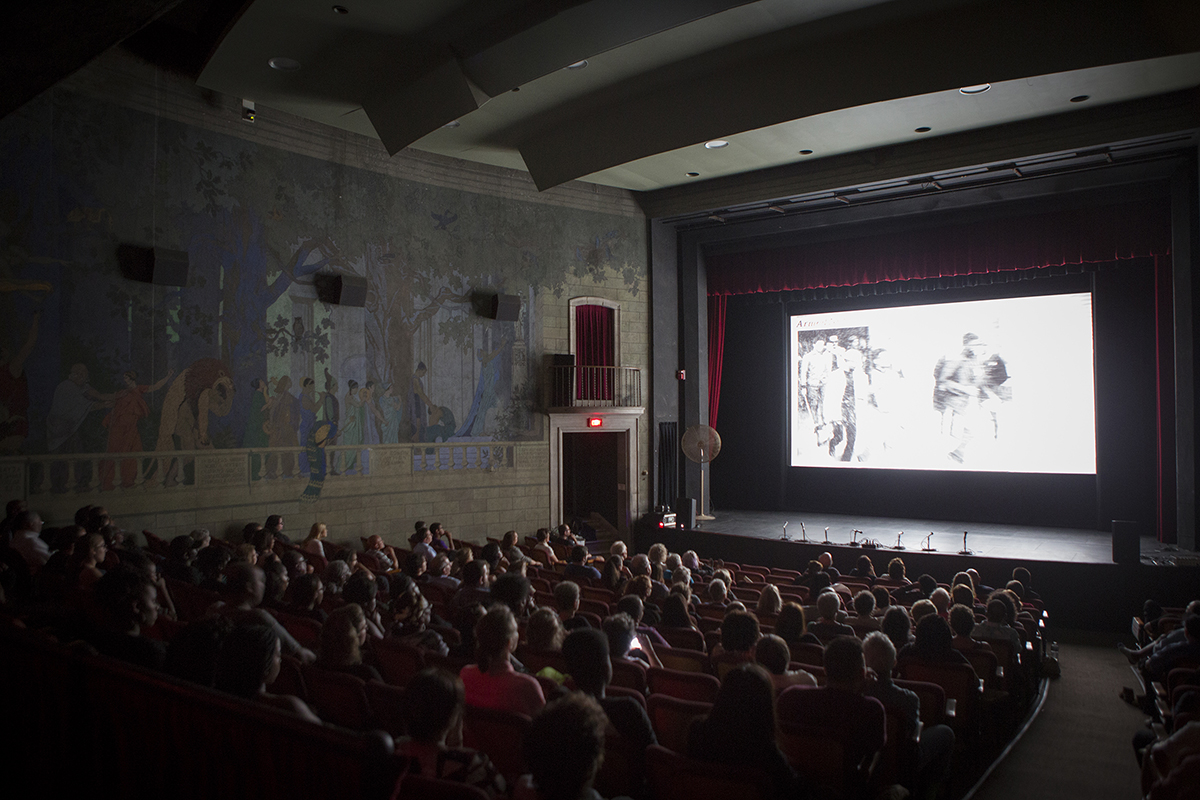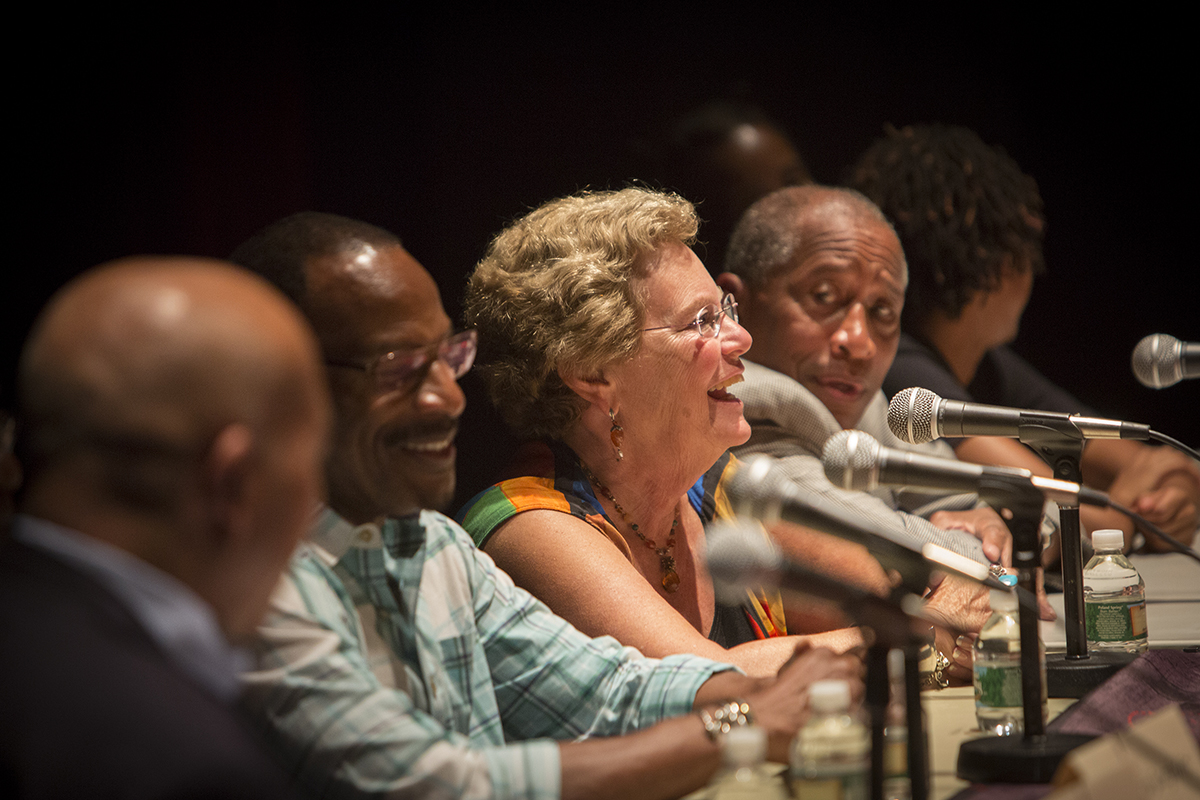Film, panel recall 1969 occupation of Willard Straight
By Linda B. Glaser

In Willard Straight Hall’s Cornell Cinema, alumni, faculty, students and members of the Ithaca community gathered Sept. 23 to remember the 1969 occupation of the building in which they sat.
The two-part event began with a screening of the documentary, “Agents of Change,” produced by Abby Ginzberg ’71 and Frank Dawson ’72. The film places the occupation of Willard Straight in the context of student protests in the United States, spotlighting the student experience at Cornell as well as that of student activists at San Francisco State University in 1968. A multigenerational panel of faculty, alumni and students followed the film, moderated by Kevin Gaines, the W.E.B. DuBois Professor of Africana Studies and an organizer of the event.
“The history of Africana Studies at Cornell is born out of activism,” said Gretchen Ritter '83, the Harold Tanner Dean of Arts and Sciences, in her introduction to the film. She noted that although discussions were well underway to establish an Africana Studies program at Cornell by the time the takeover happened, “it was this important moment that elevated broad awareness and prompted a deeper understanding of why the existence of Africana studies was of paramount importance for higher education in this country.”
Gloria Joseph, Ph.D. ’67 – described by Gaines as “a living radical black feminist legend” – was in Willard Straight with the student activists as a faculty member. She said the documentary gives “a broad enough perspective to enable audiences to realize that the Cornell uprising was one part of a struggle for justice throughout our country.”
The students who occupied the Straight have gone on to be judges, doctors and prosecutors, noted Zachary Carter ’72, chief legal officer for the city of New York. He attributed their success, in part, to the occupation. “Those were defining moments that lasted a lifetime for everyone, in whatever pursuit they engaged in,” said Carter.

Irene Smalls ’71, who led the push for Wari House, a black women’s residence, agreed, calling the student activism a “life-affirming experience.” She continued, “for some, integration was to make black people better, but you know what? Black people don't have to act white to be better. I love that throughout ‘Agents of Change’ there was the theme that we as Black people can be ourselves, that we as Black people are complete and fine human beings as we are.”
The film took seven years to make and although Ginzburg has shown the documentary in dozens of venues, she said, “this is the place that brings me to tears.” The second half of the film, which focuses on Cornell, has special resonance for her: she recalled standing outside the Straight for two days in the rain and the cold as a white student supporting those inside.
Filmmaker Frank Dawson ’72 echoed the emotional power of showing the film at Cornell. “I’ve always wanted to tell this story as a tribute to the people I shared this experience with,” he said.
For Delmar Fears ’19, political action chair for Black Students United, seeing so many parallels in the film between 1969 and today was “terrifying.” Despite the history of student activism at Cornell, she added, “we have to go so much further today.”
The event took place during a week that included two fatal police shootings of black men, and Gaines told the audience, “It would be completely remiss if we didn’t acknowledge that context for watching this film. We continue to reflect on the significance of the present moment as we look back on history and try to find empowering and inspiring connections between past and present.”
Ginzberg said she’s extremely grateful for the renewed activism on campuses and in communities, which “provides a kind of openness to this film that we might not have had four years ago.”
Audience members who spoke included participants in the 1969 occupation, such as Robert Jackson ’70, Ph.D. '81, who recalled the important role played by the Hispanic community at Cornell. Jackie Davis-Manigaulte ’72, featured in the film, said, “We believe in this place [Cornell], and we know lots of good things have happened and will continue to happen, because we’re working together as a community to make sure those things do happen.”
Linda B. Glaser is a writer for the College of Arts and Sciences.
Media Contact
Get Cornell news delivered right to your inbox.
Subscribe